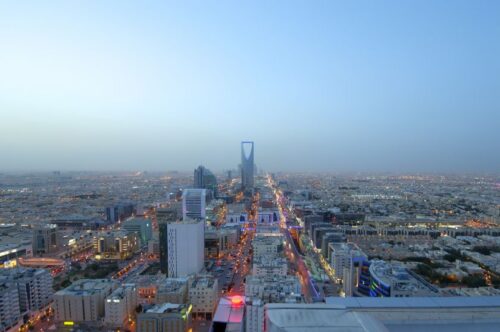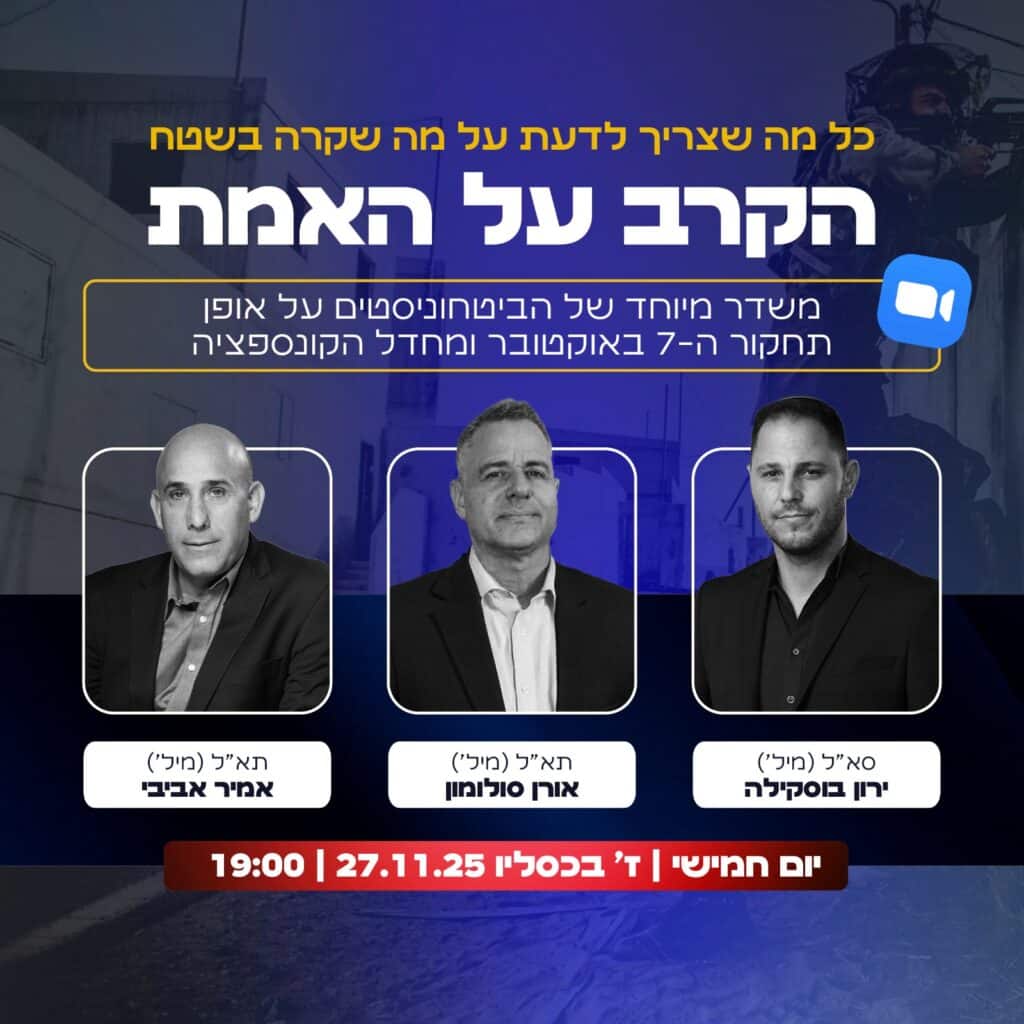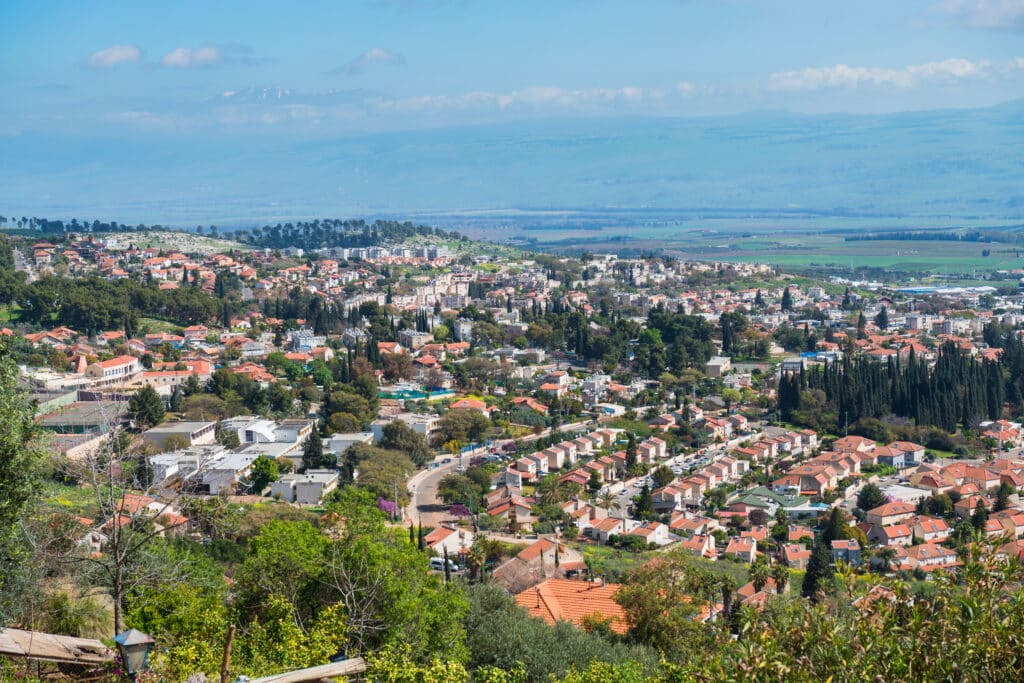
Not many people are as strongly connected to the northern region of Israel as Lt. Col. (Res.) Sarit Zehavi. Although she wasn’t born in the Galilee, she spent many years there during her military service, and today she lives in the Galilee with her family. Zehavi is the founder and president of the Alma Research and Education Center, which specializes in the security challenges Israel faces on its northern border. “What happens in the North,” Zehavi says, “must be recognized as important by every Israeli citizen. The State of Israel must recognize that the North is a strategic asset that demands investment. The equation is simple: If we’re not on the ground in the North, our enemies will be holding the ground there instead of us.”
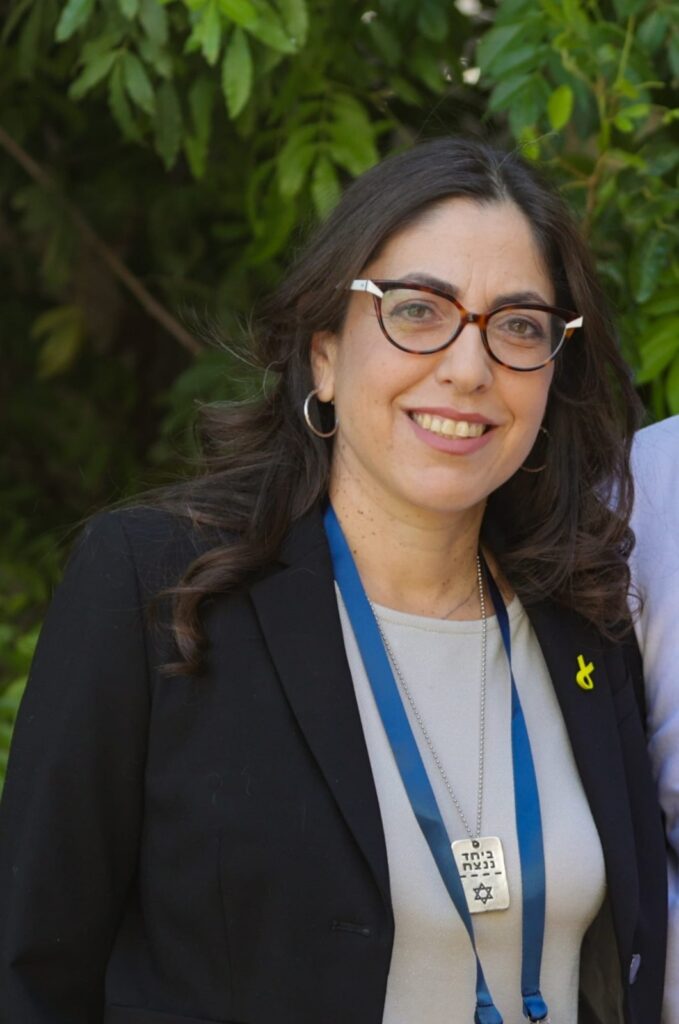
“The state didn’t take the North seriously”
Because Zehavi warned of the Hezbollah forces’ considerable preparations at the northern border long before the war, and because she is well experienced with the results of inattention to those warnings, the past year of warfare has got her goat. “The state didn’t take the North seriously,” she asserts. “The attribution scenarios relating to an attack from the North and a combined attack were well known, yet we did not prepare for them, neither offensively, nor defensively. If there had been any such preparations, maybe matters in the North would have developed differently and we wouldn’t have needed to evacuate 60 thousand people from their homes.”
Despite her anger and frustration, Zehavi acknowledges that the recent progress on the northern front, including the elimination of senior Hezbollah leaders and the significant damage to the organization’s infrastructures, certainly inspires some optimism in her. “The past weeks have given me hope that things will be changing and that we’ll be able to rebuild the North,” she notes. “You could say that we have the color back in our cheeks, after going through a whole year without seeing where this was headed.”
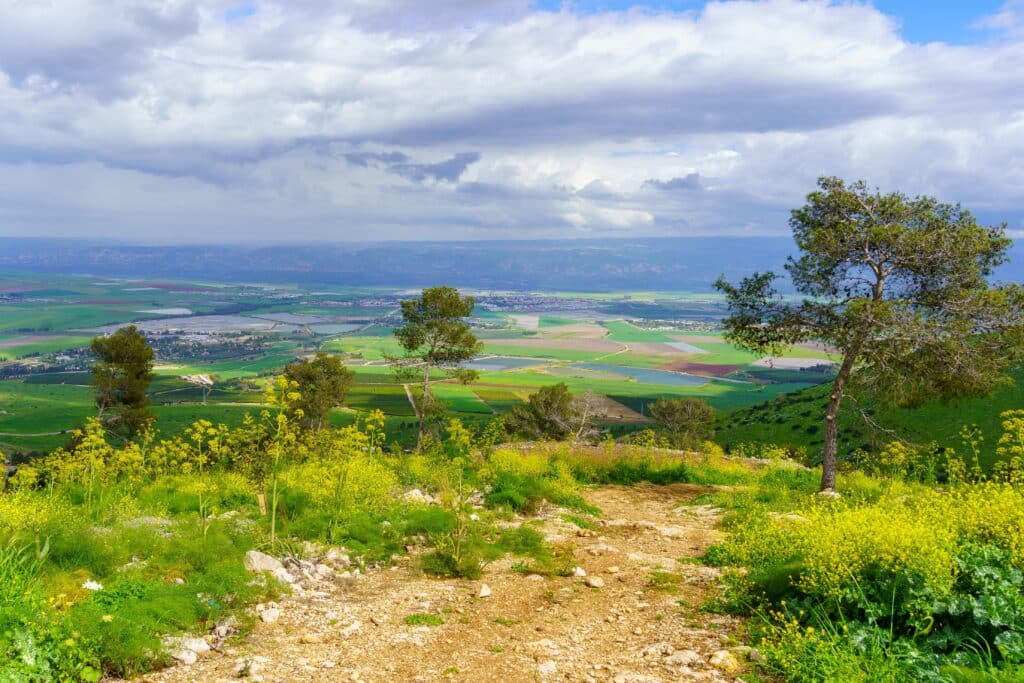
Research and fieldwork at the Alma Research and Education Center
Lt. Col. (Res.) Sarit Zehavi served for close to 15 years in the Intelligence Corps, and many of her positions were in the Northern Command. In 2018, four years after her discharge from the army, she founded the Alma Research and Education Center, which focuses on the security challenges facing the State of Israel at its northern border and how they affect Israel’s home front.
Zehavi grants that her Center didn’t anticipate the current war that broke out from the south, but she and her team of researchers did give plentiful warning that Hezbollah operatives, including the organization’s elite Radwan Force, were coming closer and closer to the fence and that they appeared to be actively preparing for an attack. At the same time, the Center’s researchers were also monitoring global trends, particularly on the Shiite axis; and there too, they saw a growing inclination to attack Israel. “Our main conclusion as a research institute was that the ability to observe at the juncture between tactical intelligence and strategic intelligence is an important ability — and without it, anyone would be hard put to warn of a coming war,” she relates. “Taking the tactical viewpoint, you look at what’s actually happening around the fence, like Hezbollah operatives gathering or patrolling. Taking the strategic viewpoint, you examine the moves that are under way on the Shiite axis, like Iran cultivating militias in Syria, Iraq, and Yemen, or like the detente between Iran and Saudi Arabia. Only from the combination of both viewpoints, one up close and one at a distance, can you construct a complete intelligence picture and truly understand the scope of the danger we’re facing. Today we can see clearly how various processes that occurred in the Middle East converged eventually in the activities at the Israeli-Lebanese border.”
Since the outbreak of the war, the Alma Research and Education Center has been focusing mainly on creating a database that details all the attacks on the North. “We are monitoring every single incident and cross-checking data from different sources,” Zehavi relates. “Our objective is to understand the attributes of those attacks to assemble the clearest possible picture of the situation. The data we assembled enabled us, for example, to point out that since July the targeting of areas that had not been evacuated has expanded. Similarly, we can also point out increases and decreases in the use of means such as UAVs and anti-tank guided missiles.”
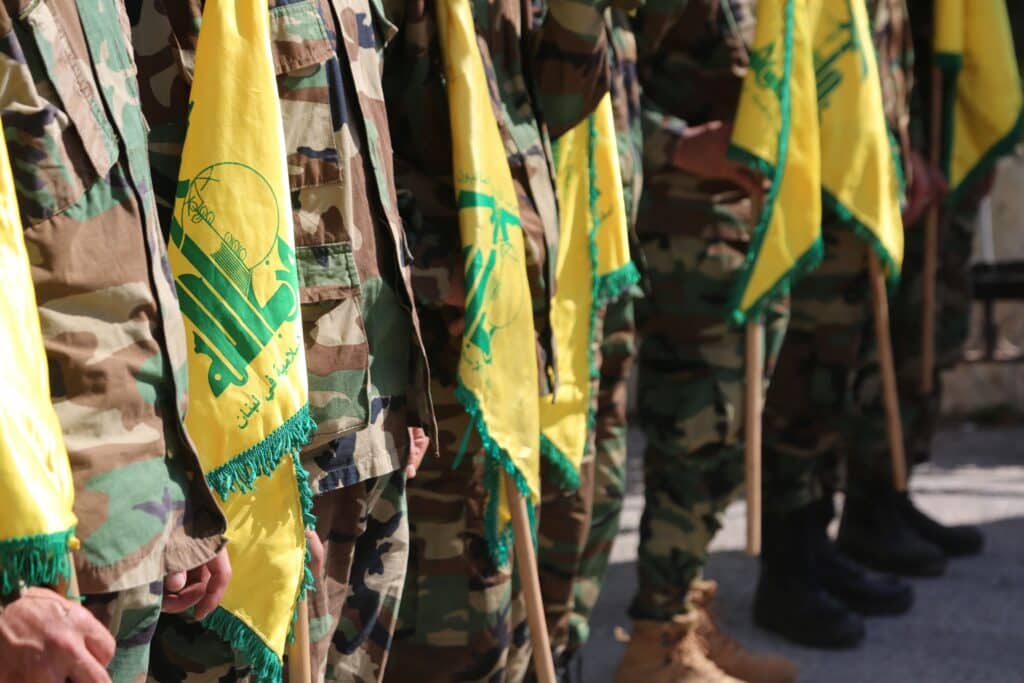
The progress is impressive, but the threat has not yet been removed
Many operations on the northern front during last September weakened Hezbollah significantly. Most of the organization’s senior leaders, foremost among them Hasan Nasrallah, were eliminated already in the initial stages. In parallel, the pager and walkie-talkie attacks not only hit thousands of operatives but also damaged the internal communications of the organization. Additionally, attacks by the Israel Air Force damaged many of the organization’s infrastructures. Although it is still early to talk about the dissolution of Hezbollah, the organization certainly is in a very different place today than only a few weeks ago.
According to Zehavi, the many blows being dealt to Hezbollah are necessary and welcome; but she does not delude herself into thinking that this will restore complete calm to the North. In fact, she expects new problems that may arise at this very moment, when Hezbollah is already not the same powerful, hierarchical organization that it was. “When we take action against an organization that isn’t really organized any longer, new challenges come up and they require different methods of operation,” she explains. “I expect that in the future we’ll see a lot of scattered operations by all kinds of offshoots and squads that are trying to take charge — and in such a situation, prior warning is harder to attain. Besides that, when it’s not clear who the commander is, pushing for negotiations and diplomatic arrangements is harder.”
Nonetheless, she emphasizes that the terrorist threat from squads and individual operatives is less severe than the strategic threat from a well-structured organization backed by a strong state such as Iran. “I’m not saying that the strategic threat that challenged us at the northern border has been completely removed,” she says, “but if we keep up what we’re doing — I believe that we’re approaching the point where that will happen.”
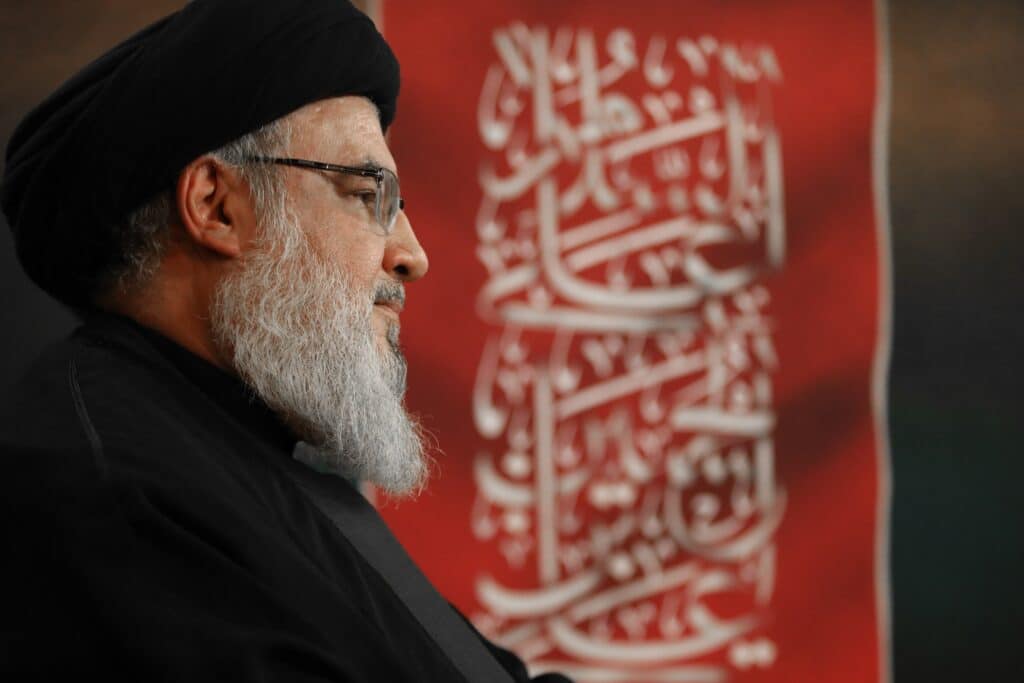
“Without security, we have nothing” — the North’s most urgent problems
Despite the impressive progress in dealing with Hezbollah, many problems on the northern front still require a response. In Zehavi’s opinion, the state and its society will need to mobilize for the rehabilitation of the North and the rebuilding of the communities there, but currently the most urgent of the problems on the table is the security problem because “without security, we have nothing.” Zehavi believes in confronting the remaining security threats on three levels: offensive, defensive, and the quest for a diplomatic arrangement.
On the offensive level, attacks should continue intensely over at least the short term. Afterward, there should be zero tolerance. Hezbollah and all its operatives should be made to understand that for every missile launched toward Israel, hundreds will be launched in return. On the defensive level, Israel should devise a dedicated defense plan for each community. In each community, a civilian emergency squad should be armed and trained. It should be able to rely on reservists who are on alert, without a full-scale mobilization that would require more budgeted personnel. In addition, all homes and institutions in the North must be properly secured, as there are still many private homes, schools, and kindergartens that do not have shelters.
Zehavi explains that progress must be made not only on the offensive and defensive levels but also on processes that will eventually lead to a diplomatic arrangement, since Israel has no interest in dealing with endless guerilla warfare. Zahavi emphasizes that such an arrangement is not intended to replace the military actions currently taking place and that it should occur only after we achieve a sufficient outcome against Hezbollah. A sufficient outcome, according to Zahavi, would be having clear evidence that a high percentage of Hezbollah’s rockets and launchers have been destroyed and that there are no operatives near the border. “Two messages for the decision-makers are important to me in this connection,” she adds. “The first is that we must be prepared for the attribution scenarios already the stage of the military’s force buildup, and the second is that the only way to deter our enemies is to take away as many of their capabilities as possible.”
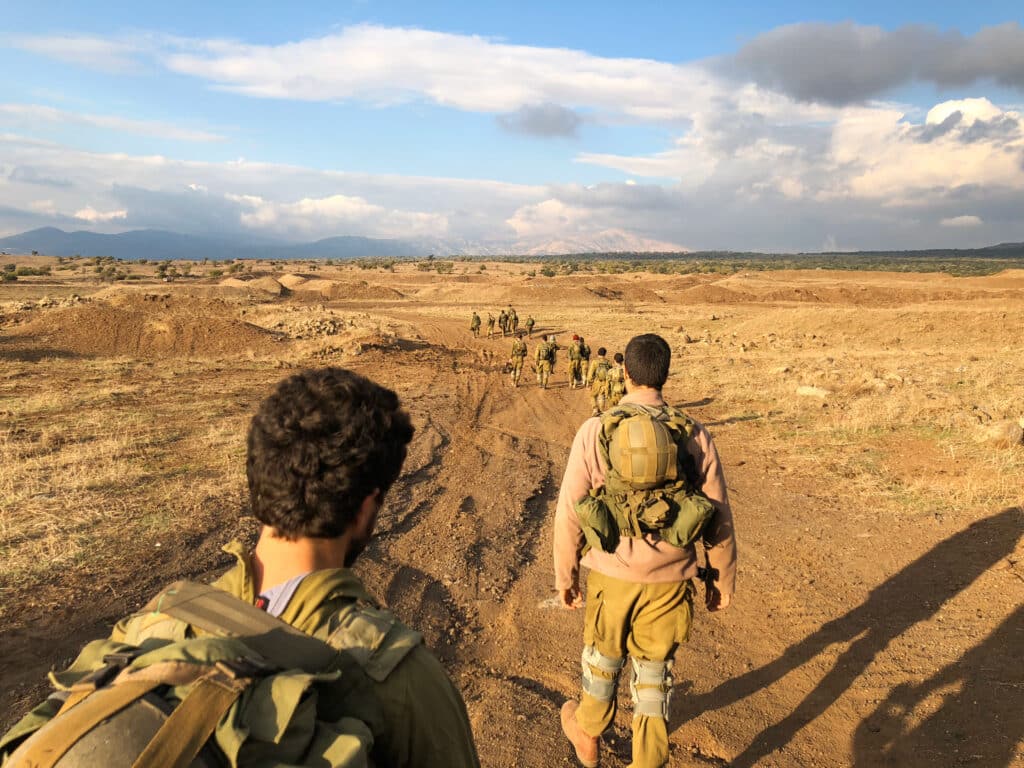
“Returning civilians to their homes in the North is a national mission”
Beyond the security aspects, returning the residents of the North to their homes requires a comprehensive solution to problems and providing incentives for the residents. Even before the outbreak of the war, many northern communities were suffering from insufficient infrastructure, limited opportunities for work and recreation, and a shortage of basic public services – including health services. Since the war began, that situation has only worsened. Today there is also a need to repair many roads and buildings that were wrecked by missile fire and by various military operations.
According to Zehavi, the approach to that problem must involve first mapping out the various needs of all the communities. “Thought needs to be invested in each type of locality here — moshavim, kibbutzim, community settlements, and cities — because each type of locality has different requirements,” she says. “While the war damage is being repaired, projects need to be resumed that were under way before war broke out. There were lots of initiatives here for setting up centers of employment and frameworks for young people. Improving public services was also discussed a lot because, for example, a city like Kiryat Shmona can’t do without an emergency room.”
Zehavi notes that along with the work of repair and construction, there must be incentives encouraging residents to return to the North, and even attracting new residents to the area. Those incentives, she says, must take the form of financial grants, tax benefits, and preferential housing terms. She also indicates that where demography is concerned, preference should be given to young families with children because the children will be the foundation of the area’s future; and where occupations are concerned, preference should be given to the fields of agriculture and industry. “In recent years, the North has seen investment primarily in tourism, while fields that are no less important, like agriculture, have been badly ignored. It’s important to understand that besides being a profession, agriculture is a major instrument in carrying out the Zionist vision. Trumpeldor said that the plough’s furrow marks the boundaries of the state. It was true a hundred years ago and it’s just as true today.”
The end of the war? It’s not here yet, but it’s coming into sight.
In her professional capacity as a researcher, Sarit Zehavi had an eventful and fascinating year — but in her capacity as a Galilean, she primarily faced difficulties. “During the war’s first weeks, there was real fear that Hezbollah would invade in the way Hamas did. And the fear was backed up by proclamations from Hezbollah and statements by the Foreign Minister of Iran,” she recounts. “Later, a new kind of difficulty set in, and it’s still with us. The children haven’t been to school in a long time, we constantly hear alerts and explosions, and dozens of communities are still evacuated. The beautiful North that we had is burnt and unsafe. But the real difficulty, for sure, was that we could see no end to it all. Even before the strong attack in the northern front began, we were living for months with the feeling that something horrible was about to happen at any moment. And that feeling can drive you crazy.”
Despite all the difficulty, Zehavi stresses that she has never for a moment had second thoughts about living in the North. “We’ve been through a lot recently, but we never thought of leaving,” she says. “I’m happy that I put down stakes in the North. My children have the privilege of growing up in a mixed population, and they’re used to being around people with different lifestyles and different beliefs. This special Galilean atmosphere is something we won’t give up on.”




